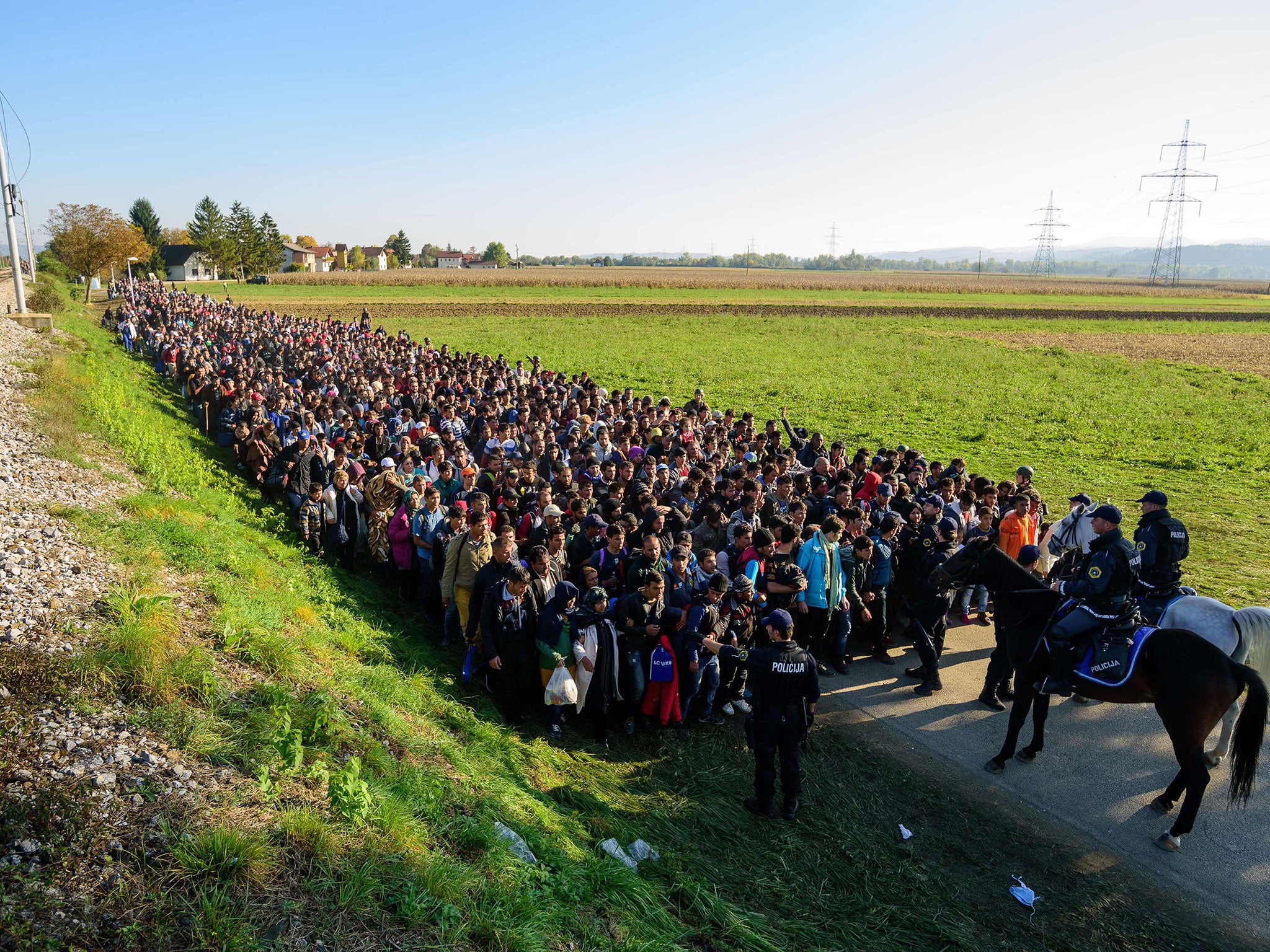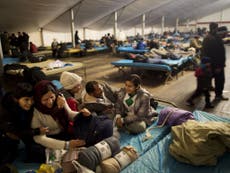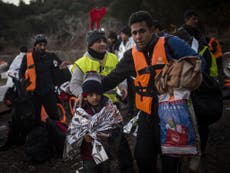Refugee crisis: Is anyone looking for the big idea to stop children drowning?
The West’s attempt to tackle the refugee issue is more about squabbling over numbers than visionary thinking

It was one of the defining images of 2015: an apparently endless column of people trudging wearily along roads in southern Europe, clutching plastic bags and suitcases. Syria is emptying out, on a scale that invokes images of Biblical migrations, and there seems to be no end to the exodus.
Like most people in Western Europe, I feel aghast and helpless in the face of human suffering on this scale. I wasn’t alive during the Second World War but the parallels with the involuntary movement of people caused by the Nazis are as obvious as they are uncomfortable. In the late 1930s, the US and much of Europe closed its doors to hundreds of thousands of desperate would-be migrants who were trying to flee Hitler, refusing their requests for visas and condemning many to die in concentration camps.
No one should forget that Anne Frank and her family went into hiding in 1942 because they were what would now be called “failed asylum-seekers”. There was nothing inevitable about the death of Anne, who might be alive today if the world’s democracies had shown more compassion towards German Jews. Three-quarters of a century later, Western governments are still failing to provide safe, legal avenues of escape for people who face murder, arrest and torture at the hands of their own governments.
In the case of Syria, there is an additional threat from the religious fanatics of Islamic State (Isis) and groups sympathetic to al-Qaeda. But the root cause of this latest refugee crisis is once again a fascist government that is prepared to commit atrocities to stay in power. Bashar al-Assad’s Baath party was founded immediately after the Second World War by admirers of Hitler and Mussolini, and one of the main torture instruments in his prisons is known as the “German chair”.
The heart-rending columns of Syrian refugees are proof of a failure to act on promises made by the international community when pictures from the Nazi death camps emerged for the first time. There is no agreement, let alone anything approaching a big idea, about how to achieve what the vast majority of Syrians actually want: the possibility of returning to their country and resuming their lives in safety. It’s a failure of international governance (not a phrase you hear very often these days) on a grand scale.
So, where are the institutions which were supposed to prevent such horrors happening again? Where, to be more precise, is the UN? The scale of the international community’s failure to respond effectively to humanitarian crises was underlined last week by the outgoing UN High Commissioner for Refugees, Antonio Guterres. The Portuguese politician held the job for 10 years and pointed out that the number of displaced people had increased from 36 million to a staggering 60 million in that period. Guterres blamed this development on the international community losing much of its capacity to avoid or solve a “dramatic multiplication of conflicts” in the world.
That’s the UN’s job. But affluent countries are squabbling about who will take Syrian refugees – David Cameron has offered to take a paltry 20,000 over five years – while children continue to drown in boats that aren’t even seaworthy. The Prime Minister’s interest in foreign affairs is too inconsistent to deserve being called a policy; he got rid of Colonel Gaddafi in Libya but sells arms to the monstrous Saudi government, which is killing civilians in Yemen and executed almost 50 of its own citizens on Saturday. Last month, RAF planes joined the US Air Force in bombing Isis’s military forces and economic interests in Syria, while Russia appears to be using air strikes against the jihadists as cover to target Assad’s opponents.
I doubt whether many people are even aware that the UK held the rotating presidency of the UN’s most powerful body, the Security Council, in November last year. Cameron certainly didn’t seize the opportunity to come up with new ideas to break the stalemate created by Russia’s support for Assad. If that really is as great an obstacle as some commentators suggest – and even Vladimir Putin might be getting fed up with his onerous protégé by now – it means that the UN is simply not able to fulfil its primary role of maintaining international peace and security.
It seems unlikely that the conflict in Syria can be brought to an end without ground troops, and a UN force taking temporary control of the country under a Security Council mandate seems the best solution. The idea has been welcomed by some British MPs but why isn’t Cameron, François Hollande or Barack Obama pushing for it? If the UN’s structure means that a single country can prevent it from protecting civilians and intervening in conflicts as savage as Syria’s, then the case for reform is unanswerable.
At the very least, the UN needs a permanent military force, ready to be deployed at short notice, instead of having to respond to crises on an ad hoc basis. In November last year, the latest month for which figures are available, its entire peacekeeping force, drawn from its member countries, amounted to little more than 106,000 police and military personnel. They have to carry out all the UN’s current peacekeeping missions, and many more would be needed to deal with the different factions in Syria.
History shows that dictators are a perennial problem, causing huge suffering at home and creating refugee crises abroad. But the Syrian disaster confirms that even the leaders of democratic states, with a public commitment to universal human rights, are struggling to rise above narrow national interests. Instead of making the UN work, they’re repeating the mistakes that caused so many needless deaths in the 20th century.






Join our commenting forum
Join thought-provoking conversations, follow other Independent readers and see their replies